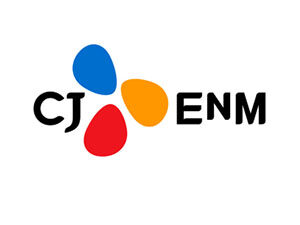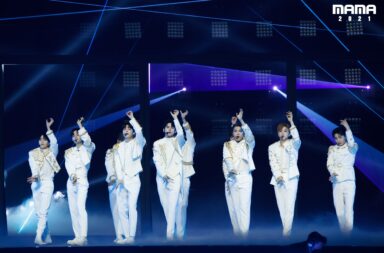
On November 16, during a Seoul press conference, CJ ENM shared details about the 2021 Ment Asian Music Award (MAMA) performance lineup. However, the entertainment company did not stop there, CJ ENM director-general of music content headquarters, Kim Hyun-Soo announced intentions to host the K-pop award show in America.
MAMA is a year-end award show organized by CJ ENM and broadcasted through the channel Mnet. It was launched in 1999 as “Mnet Music Video Festival,” and the show was rebranded several times until 2009 when it took on its current title to mark the beginning of a new K-pop music award ceremony. MAMA became a global awards ceremony in 2010 when it was held in Macau, Singapore, and Hong Kong. It was the first-ever Korean year-end award show to be held simultaneously at three locations across Asia. Until recently, MAMA had only been held throughout parts of Asia, though there are now plans to conduct a show on U.S soil in the future. This decision stands as a testament to K-culture becoming more global.
MAMA first expanded into other Asian countries due to the Korean “Hallyu” wave. From the mid-2000s to the early 2010s, Korean musical acts and television dramas were becoming increasingly popular throughout Asia. Through the support of the Ministry of Culture in South Korea, a Korean wave spread through the continent of Asia with idols at the center. As the popularity of Korean culture spread, MAMA moved outside of South Korea for the first time in 2010, holding the show in Macau, China.
Mnet CEO Park Kwang-Won said ahead of the 2010 Macau show:
“There must be an interchanging of Asian culture as a whole in order to develop the Asian wave. Just like the influence that the American Grammy awards have on the entire Western market, we hope to develop the MAMA in order to influence the global Asian music market.”

The same reasoning for why MAMA expanded in the past can be used for why CJ ENM is planning to expand the show into America. The question is, why now? K-culture has become increasingly popular with idol groups consistently charting on Billboard Hot 100, Parasite and Minari winning Academy Awards, and Squid Game becoming the most-watched Netflix show on the streaming service. However, it took multiple steps for this popularity to occur.

In 2009, BoA settled in L.A to promote her English single “Eat You Up.” Her album made her the first K-pop singer to chart on the Billboard 200. Soloist Rain achieved a high U.S profile and in 2006 was named in the Time Magazine’s Top 100 Most Influential People To Shape Our World. However, BoA returned to South Korea and Japan to promote due to a lack of upward trajectory in her U.S career, while Rain lost popularity after his two-year mandatory service in the military.
More groups began to enter the U.S charts, but the biggest breakout was none other than Psy‘s 2012 hit “Gangnam Style.” This song opened up South Korean music to those who had not known about the country’s lucrative entertainment industry. In partnership with CJ ENM, Koreaboo took the opportunity of a new audience for K-pop to create Kcon in 2012 in L.A with the hopes of bringing K-pop to America. The event drew 20,000 people, growing to 42,000 attendees by 2014.
One of the major factors in K-pop’s rise in popularity is the use of social media. BTS became the first to open up a Twitter page before the group even debuted, which has now become customary for idol groups to do. Social media has allowed groups to interact more with their fans and gives artists a platform to share more content including dance practices, behind the scenes of MV, lives, and much more. By fostering such interactions, social media has created a much more devoted fandom. Passionate fans lead to a huge amount of digital traffic. In 2020 alone, K-pop fandoms accumulated 6.7 billion tweets. This type of impact is what MAMA wants to capitalize off. Mnet is using the recognition that K-pop is receiving as an opportunity to expand their show just as Koreaboo took the popularity of “Gangnam Style” to create Kcon.

MAMA’s expansion into the U.S can also be an opportunity for K-culture to become an even bigger global phenomenon. During the award show, many of the presenters are actors or actresses. These people can catch the attention of audience members, which could foster an interest in the actor/actress’s previous works. This attention can then lead to new audiences for shows and having more people invested in K-dramas. Furthermore, many idols go on various variety shows in order to promote their comebacks. If a person gets invested in a group, there is a likelihood that they would want to watch the shows they have appeared on, including shows like Amazing Saturday that promote both music and traditional food markets in Korea.
Overall, MAMA’s future plans to move into America are similar to the show’s first expansion into Asian countries as it followed the growing popularity of Korean culture. Thus, the growing acclaim for K-music in the states allows for a wider audience, which is a firm testament to K-culture’s popularity.
(Billboard, CJ ENM, Nylon, NPR, Korea.net. Images via CJ ENM, tvN, SM Entertainment, Getty Images)



